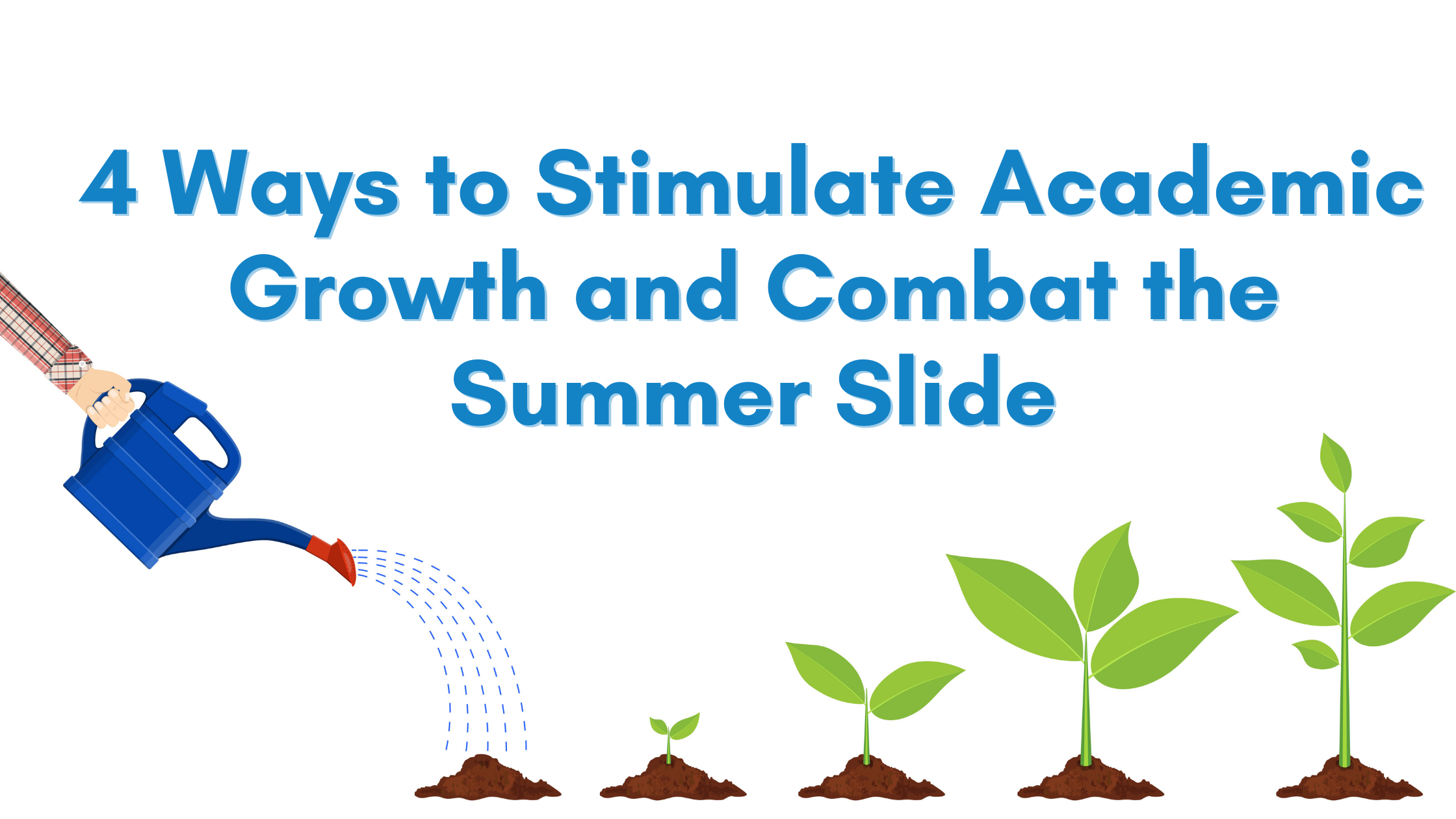
Congratulations! You have made it to the end of the year teaching in what I am sure was one of the most challenging years yet. Even if you may not have heard it enough, you have made a difference in the lives of your students this year by providing safety and continuity in your classroom.
We all know that the pandemic has exacerbated learning loss for students over this year, commonly referred to as the “COVID slide,” and as educators we know that the “summer slide” is a real phenomenon. These two regression patterns may combine this summer to create a substantial disparity in the fall for certain students who need the most assistance. The good news is that there ARE steps families can take this summer to combat the combination COVID and summer slide, and they do not have to be intense for students (and families) who may have felt overwhelmed by school this past year.
Before you head out the door to some much-needed and deserved rest, here are some low-stress tips to share with your students’ families to mitigate summer learning loss:
1. Encourage Extra Help and Programming
Adding extra learning time can be difficult when students feel burnt out from a school year with many changes, and it is not feasible to require summer school for all. Extra help this summer can look different for different students, and it’s important to remember that not all skills need to be prioritized at the same time.
While I wrote here how ESY can be beneficial for certain students who need the structure of school to retain learning, and others may be successful attending traditional summer school options, families can also explore other options for children to learn. For example, some students could benefit from working with a tutor once a week on certain math or reading skills. Many college students offer tutoring at accessible prices over the summer months, along with high school students that may need community service hours. Many teachers offer services as well, though perhaps at higher prices.
Investigate community-based options for learning, such as different summer camps and programs available in your area through the parks and recreation department, disability services, and the library. There are often ways for families to get part or all of these activities funded if they need financial assistance. While maybe not as specifically rooted in academics as summer school or tutoring, academic and social skills are usually a part of these community-based activities. Many students this year missed out on some of the social skills learned in a typical school environment, and may need a focus on skills like these in sports camps and other diverse settings. Brain growth is not only about reading and math, and students may thrive in different environments focused on their interests over the summer. In my experience, sometimes children learn the most when they are not focused on academics. For example, the problem-solving skills learned at sports camps could end up helping students with problem-solving in math class in the fall.
It is also important not to underestimate the learning that occurs on family field trips in the summer, whether it is a vacation or day trips around town to an area farm, zoo, museum, aquarium, or community events. On these trips students learn that changes happen in their schedule and environment. They can practice social skills and experience different cultures. The new information they learn can directly relate to their life or help them make deeper connections to concepts discussed in school. For example, a hands-on trip to a historical site is going to facilitate all kinds of learning that students may not have found interesting in a textbook.
2. Give Parents Skills to Work on IEPs At Home
Hopefully you were able to update student assessment data this spring to continue creating meaningful, data-informed IEP goals for your students. From there, you can conference with guardians before school is out about how they can continue to best work with their students on their IEP goals over the summer break.
Some families may take this very seriously and be interested in learning how to document data; other families may need a more basic approach. Perhaps you send home things like data sheets to some families and a simple list of skills to work on to others. I also suggest focusing on goals that work with families and what they are able to provide. For example, if you know a family cannot help a student with Algebra II math goals over the summer, then that is not a reasonable expectation. However, perhaps that same student has goals about researching colleges or learning life skills that family could realistically focus on.
In addition, to work on these goals you may have to send home supports for students over the summer. Students may need to take home visuals of task analyses, schedules, and different routines. Families who have students with behavior IEP goals may benefit from keeping a loose or strict routine or structure to their summer days. Work with families to see what they need to be successful.
We have already lost so much time this year to work on IEP goals; we do not need to compound this loss over the summer months. Encouraging adding in math to everyday activities and finding small ways to practice math at home can make a big difference for students over the summer. It is easy to overlook the math skills we use every day, but it is actually simple to engage in mathematical thinking when you start looking for math in daily activities like cooking, sports, shopping, and money skills. For our youngest students, it is helpful just to count often, point out shapes in the real world and around the house, and talk about concepts such as big and small. My daughter likes to count out her snacks, like crackers, and always wants “one more!”—an example of effortless daily addition practice.
3. Get Outside
The summer is the perfect time for students to get outside, especially when students may have been cooped up at home, sitting on their computers this school year. The research continues to grow on how exploring and playing outside has so many academic, physical, and mental health benefits for those of all ages. Nature is a great place to work on imaginary play and social skills, and incorporate quality family time. To read more about the benefits of children being outdoors, check out the resources at The Children and Nature Network, which even provides research digests of the most recent studies regarding children and nature.
Below are a few ideas of ways to encourage families to spend time outside this summer:
- Here is a timely list of 10 Nature Activities to Help Get Your Family Through the Coronavirus Pandemic.
- Explore community parks and gardens in your local area, or travel to new ones! Families could have a checklist of local spots.
- Take a walk or hike on a trail or even just around your neighborhood.
- Have children help with gardening or give them a small place to have their own garden—even a pot on your porch will do.
- My daughter and I have been taking many classes at our local nature center—check those in your area for camps, story times, and classes.
- Practice mindfulness in nature as a family.
- Here is a list of tons of nature activities for kids of all ages.
- The Tinkergarten website has many wonderful DIY resources of different nature activities, searchable by age range or skill; they offer classes in many areas as well or families can participate online
- Check your community for other resources specific to special education services, such as those provided by Outside OT, an occupational therapy program that specializes in helping kids with sensory, coordination, attention and social challenges through nature-based programs. No matter where you are located, you can check out their free downloadable resources here.
- Learn more about the National Wildlife Foundation’s “Green Hour,” a movement to get kids outside each day, or 1000 Hours Outside, the global movement trying to replace screen time with time outdoors.
4. Read Everyday
Good news in the area of literacy: a recent study has found that families that simply read every day with their kindergarten children were able to mitigate learning loss during the pandemic. This means that one of the simplest things we can encourage families to do over the summer is just to read!
By encouraging these activities, hopefully we can slow the “summer slide” for students who have already had a difficult year. Enjoy your break, and thank you educators for all you do!






